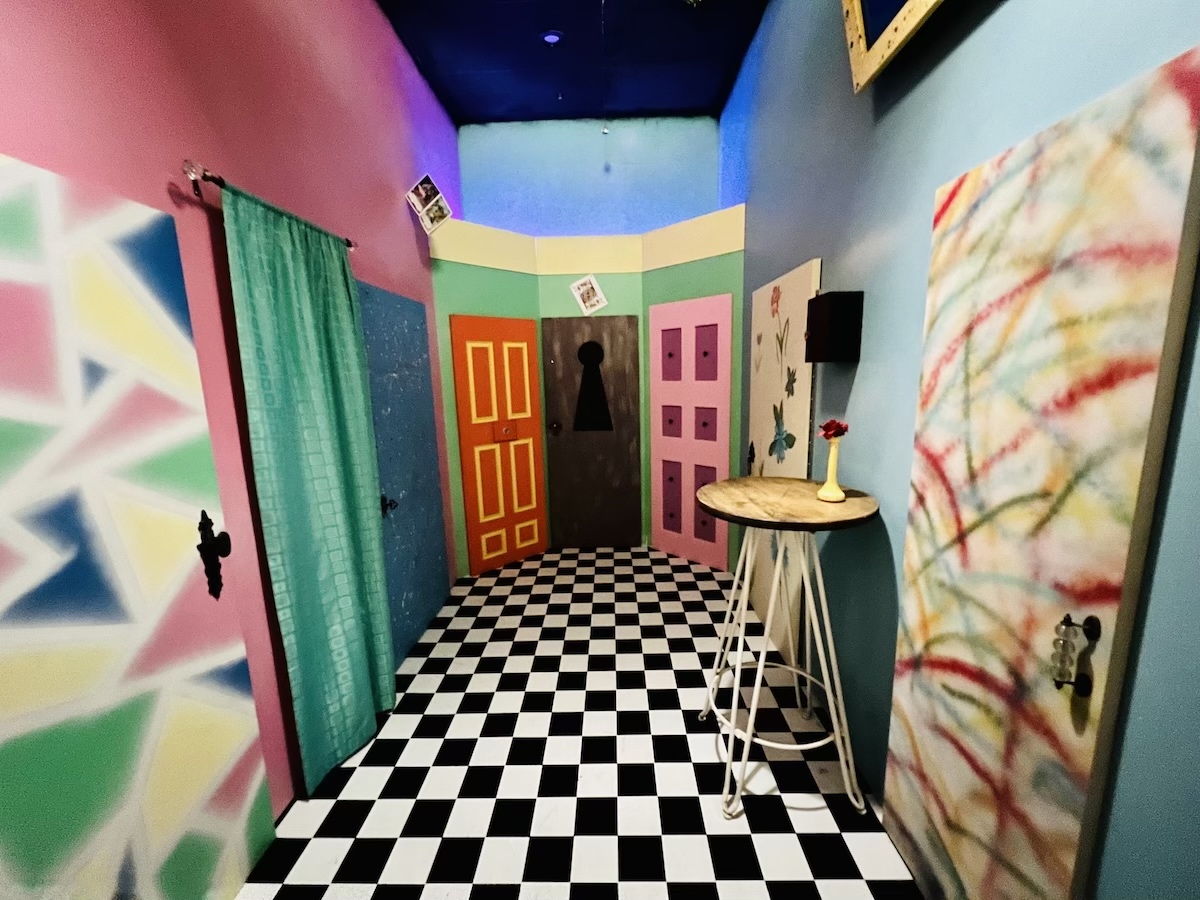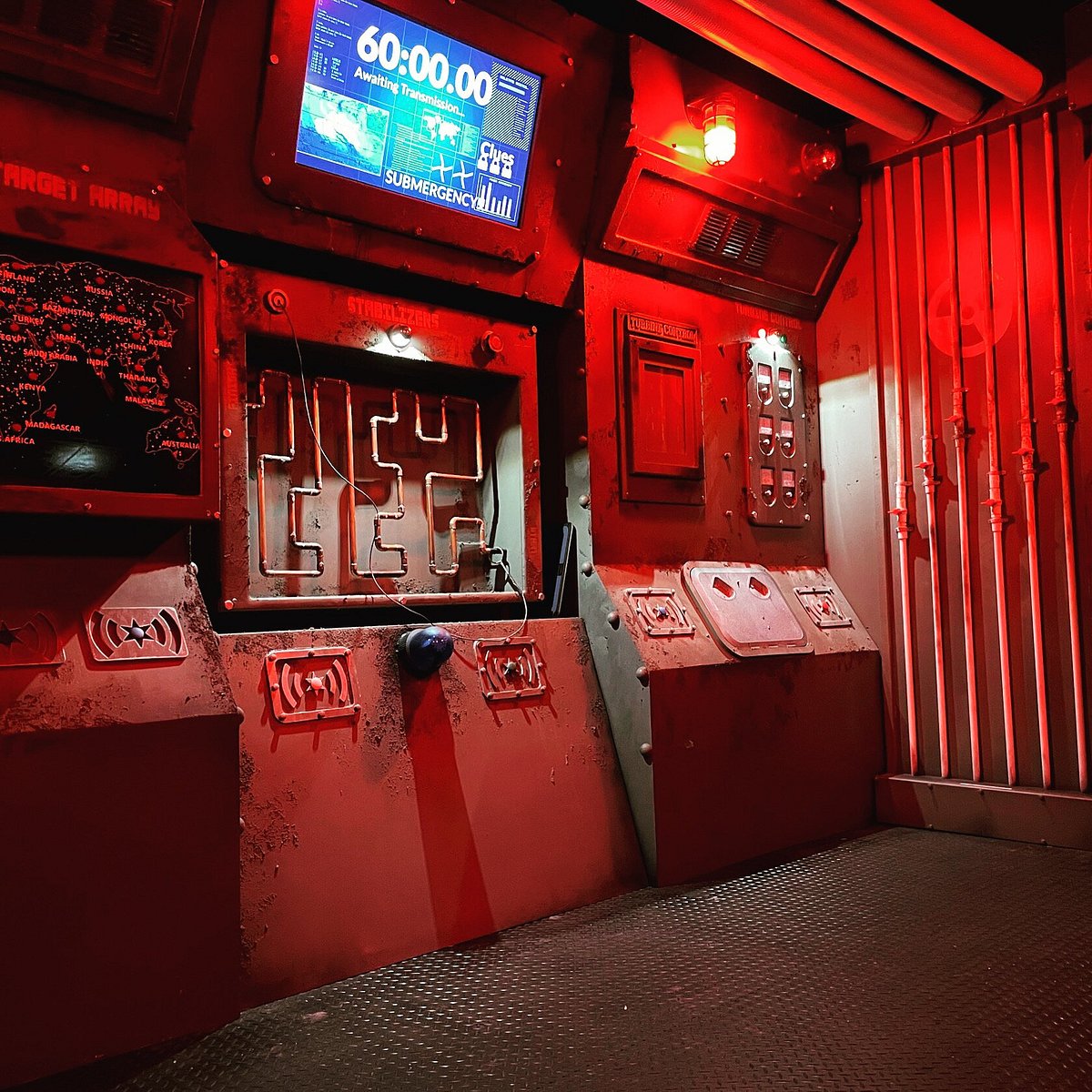Best Escape Room Experience-- Exciting Games and Puzzles for Groups
Best Escape Room Experience-- Exciting Games and Puzzles for Groups
Blog Article
Group Methods: Exactly How to Collaborate Successfully in a Retreat Space
Groups need to proactively listen to each member's understandings, assign duties that align with specific strengths, and maintain routine check-ins to ensure focus and prevent redundancy. By promoting an environment that values cohesion and adaptability, teams can dramatically increase their efficiency and success rates.
Establish Clear Interaction

To assist in clear communication, it is important to mark a central point of call for details dissemination. Brief, concentrated updates from each group participant can maintain the group informed without overwhelming them with information.

Assign Duties Tactically
While clear communication establishes the foundation for reliable synergy, designating duties purposefully guarantees that each team participant's strengths are made use of efficiently. In a retreat space scenario, the time-sensitive and intricate nature of difficulties necessitates a well-organized approach to task delegation. By recognizing and leveraging private expertises, teams can maximize their problem-solving abilities and enhance general efficiency.
First, evaluate the one-of-a-kind skills and qualities of each participant. For instance, someone with an eager eye for information might stand out in finding concealed objects, while a rational thinker can be better matched to resolving problems - best escape room. It's similarly vital to have a leader who can supervise development, take care of the timeline, and make decisive phone calls when needed. This duty typically calls for solid organizational and interpersonal skills.
2nd, make certain that functions are versatile and adaptable. As new obstacles arise, the team needs to be able to pivot, reallocating tasks as called for. This adaptability assists preserve momentum and avoids bottlenecks that could occur as a result of inflexible duty tasks.
Eventually, a calculated technique to function project not only makes best use of the toughness of each group participant however additionally cultivates a natural setting, driving the team in the direction of an effective escape.
Utilize Diverse Skills
Identifying and utilizing the varied abilities within your team can significantly elevate your efficiency in a getaway space. Each staff member brings unique staminas to the table, and properly leveraging these capacities can quicken analytic and boost total effectiveness. A group participant with solid click over here now analytical abilities might succeed at figuring out complicated codes or patterns, while another with keen observational capacities might quickly find hidden clues that others might overlook.
Efficient communication is essential to making use of these varied skills. Motivate group members to voice their insights and concepts without delay, guaranteeing that all possible options are considered. This comprehensive strategy fosters a vibrant environment where imagination and important reasoning can grow. Furthermore, designating jobs that straighten with each participant's strengths can stop bottlenecks and guarantee that development is continuous.
Additionally, diversity in abilities often converts to diversity in thinking styles, which is indispensable in a getaway room setup. While some difficulties may need rational reasoning and precision, others might take advantage of imaginative and side reasoning. By acknowledging and leveraging this diversity, teams can deal with a wider series of difficulties better, consequently raising their possibilities of a successful escape.
Manage Time Efficiently

First, allot initial minutes for a fast survey of the area. Recognize visible problems and split tasks based on employee' toughness, making sure that nobody is still. Establish inner time checkpoints to assess development occasionally; for circumstances, goal to have half the challenges addressed by the mid-point of the video game. This method can aid keep the team concentrated and avoid time from escaping undetected.
In addition, prevent passage vision. If a problem is taking as well long, turn employee or relocate on to another obstacle, returning later with fresh viewpoints. Communication is critical-- maintain everyone upgraded on fixed challenges and staying jobs to prevent repetitive efforts.
Finally, make use of any hints or clues moderately but tactically - best escape room. see it here Understanding when to ask for help can save important time. By adhering to Find Out More these time monitoring principles, groups can dramatically boost their opportunities of an effective and delightful retreat area experience
Debrief and Reflect
Representation is a necessary aspect of team growth and enhancement in the context of escape spaces. Once the challenge is finished, whether efficiently or not, it is vital for the group to take part in a structured debriefing session. This procedure allows staff member to examine their efficiency, recognize toughness, and determine areas for renovation.
Begin the debrief by reviewing what went well. Highlight certain circumstances of efficient interaction, analytic, and partnership. Recognizing these positive behaviors strengthens them and urges their repetition in future difficulties.
Following, resolve the challenges ran into. Review minutes of complication, miscommunication, or inadequate methods. Encourage an open and constructive dialogue where employee can share their point of views without fear of criticism. This promotes a culture of continuous enhancement and knowing.
Final Thought
Finally, effective partnership in a retreat room is based upon clear interaction, critical duty projects, the reliable use of varied skills, and skilled time administration. Routine check-ins and structured debriefings are essential for preserving focus and fostering continuous renovation. By creating a natural and flexible team setting, the likelihood of effectively resolving puzzles and attaining the goal of escaping the room is significantly boosted. This method not just guarantees success however additionally advertises cumulative development and understanding.
Report this page